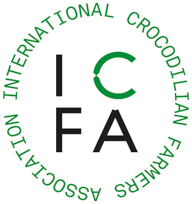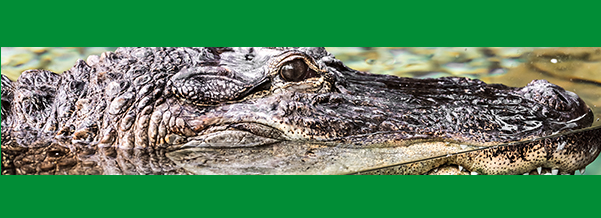|
|
| |
| |
 |
| |
|
|
|
|
|
|
|
| |
| |
| |
 |
| |
|
|
|
|
| |
|
|
| |
Jérôme Caraguel has left us. After years of struggle during which he impressed us with his courage, his will, his optimism, he passed away last March.
It is a great sadness for all those who had the chance to know him. ICFA knows how much it owes to him, as he was its historical driving force, its Honorary President and the only member as a person.
|
| |
|
|
|
|
|
|
| |
Jérôme’s life has been marked by the exotic. For a long time an entrepreneur in South America, Venezuela and Colombia, he became in 2007 the head of purchasing for exotic skins at Hermès, when the company integrated Roggwiller, which he had joined in the early 2000s. He had invented this job and was the only one in the world to do it. He had understood all the issues at stake, from animal conservation to product quality, via the sustainability of the farms.
He knew all the actors in this industry, the owners of the territories where the eggs are harvested, the aboriginal tribes, all the farmers, all the traders, all the tanners, all the organizations having authority in this trade, wherever they are in the world.
No one knew the world of exotic leathers like he did. He was recognized by all and all sought to meet him. He inspired and trained many people, sharing his immense knowledge and entrepreneurial spirit.
We will not forget Jerôme, his elegance, his kindness, his courtesy, his determination. Jérôme was a profound, endearing, singular and original man. He inspired respect and admiration. All the members of ICFA and the great family of the exotic industry share his family’s sorrow and send him their heartfelt condolences.
|
|
| |
|
|
|
|
|
|
|
| |
Certification in Australia!
|
| |
|
|
|
|
|
| |
| |
 |
| |
|
|
|
|
| |
| |
Ashley Underhill explains the challenges and outcomes of certification
|
|
| |
Did the standards prompt you to make some changes in your farming practices?
Improving all the little things on our farms is borne out through the standards. It is often challenging as a farmer when faced with so many big challenges and changes in an industry that is still so much in its infancy to be able to focus on and get all the little things right. The added motivation provided through an external audit make you and your team focus on getting all the small things right.
What do you expect from the standards implementation?
Improved systems and documentation. Like most farmers, observing good animal health, low incidence of disease and mortality are always on top of the agenda. To have so much focus on so much detail, both in and out of the office, has provided a great overview of our systems and controls. People are the biggest asset for a farm but also our biggest challenge, especially when working in a challenging tropical environment, confirmation of systems for staff to work to was a benefit.
Why did you consider the need for certification?
Like all industries, our industry needs to show its customers/consumers that we are good farmers with good husbandry, good practices delivering good welfare, and good controls. As an individual farmer level, we will be judged not just on what we do but on what our fellow farmers do as well.
How long did it take to obtain the certification?
About 18 months. Auditors not being able to travel for the best part of 12 months because of government enforced lock downs and travel restrictions (Covid related) delayed our physical inspection hence our certification.
What did you consider the most demanding in the certification process?
The documentation and paperwork to support the farming practices has been the biggest challenge. Previously things were done by farm teams but the documentation to support this is not always solid.
Do you already return some benefits from the standards implementation or the certification?
The key benefit from the certification is having an independent set of eyes work through the farm and management systems implemented. I have found this to be of great benefit, firstly to independently endorse what we are doing and secondly to identify areas where we could improve. The concept of ‘continual improvement’ is one that underwrites good farming industries and the ICFA standard.
Are there fields on which you consider that the standards could be more demanding?
Our standards will continue to be improved as industry invests in science and research projects to better understand the facts around farming practices. Ultimately all farming practices will be supported by science.
I am pleased to see that farmers and the farming industry across the globe are all seeing the benefit of having third party auditors visit and inspect our farms. Our farms, farmers and industry will be much better for the ICFA standard and scheme.
|
| |
|
|
|
|
|
| |
|
| |
| |
 |
| |
|
|
|
|
|
|
| |
| |
| |
SCIENTIFIC SECTION
Research into crocodilian welfare assessment
|
| |
|
| |
Leisha Hewitt accepted to explain the last findings about crocodilians welfare.
A study to identify a toolbox of animal-based measures, that can be used to assess the welfare of farmed crocodilians, was completed and published last December [1]. This is an important step towards identifying animal-based assessment methods that can be used to support the international outcome-based standard developed by ICFA.
Animal welfare is a scientific term that describes a measurable quality of a living animal [2]. The assessment of animal welfare should consider an animal’s physical functioning and fitness and mental wellbeing [3,4]. The factors that affect an animal’s welfare include its physical environment and the resources available to the animal, such as space allowances and housing conditions, and the management practices undertaken on the farm, such as provision of pain relief during husbandry procedures, veterinary treatment and animal handling methods. Animal-based measures are the measure of choice for determining and animal’s welfare state as they are related specifically to the animal, for example, behaviour, body condition and health.
The aim of the study was to identify potential animal-based measures that could cover the whole multidimensional concept of animal welfare (physical and mental wellbeing) in crocodilians, whilst concentrating on measures that were practical for use on the farm. It focused on the critical aspects of crocodilian farming that could negatively impact crocodilian welfare, as indicated by the Five Freedoms [5] and aligned with the principles and criteria of Welfare Quality® [6].
The study identified several key animal-based measures for the assessment of ‘good health’, ‘good feeding’ and ‘good housing’ [6]. Identifying measures of ‘appropriate behaviour’ was more complicated and further work is required in this area of crocodilian welfare science. The outcome of the study can be used to continuously improve industry practice, providing a basis for outcome-based certification standards, and supporting informed public awareness regarding the farming of crocodilians.
- Hewitt L, Small A. Welfare of Farmed Crocodilians: Identification of Potential Animal-Based Measures Using Elicitation of Expert Opinion. Animals (Basel), 2021. 11(12): p. 3450.
https://www.mdpi.com/2076-2615/11/12/3450
- Pond, W.G., F.W. Bazer, and B.E. Rollin, Animal Welfare in Animal Agriculture : Husbandry, Stewardship, and Sustainability in Animal Production. 2011, Bosa Roca, UNITED STATES: Taylor & Francis Group.
- Veissier, I. and A. Boissy, Stress and welfare: Two complementary concepts that are intrinsically related to the animal’s point of view. Physiology & Behavior, 2007. 92(3): p. 429-433.
- Botreau, R., et al., Definition of criteria for overall assessment of animal welfare. Animal Welfare, 2007. 16: p. 225-228.
- Webster J. Animal Welfare: Freedoms, Dominions and « A Life Worth Living ». Animals (Basel), 2016. 6(6): p. 35
- Blokhuis, H.J., et al., The Welfare Quality® project and beyond: Safeguarding farm animal well-being. Acta Agriculturae Scandinavica, Section A — Animal Science, 2010. 60(3): p. 129-140.
|
| |
|
|
|
|
|
| |
|
|
|
|
|
|
|
| |
|
ICFA participated to the Linea Pelle event in Milan last December. An opportunity to recall about sustainability, in a seminar organized by UNIC with Dan Natusch, Chair IUCN Snake Specialist Group.
Click here to watch the seminar: https://internationalcrocodilian.com/
|
|
| |
|
|
|
|
| |
|
Young generations are very attentive to environmental issues. But do they know about exotic sustainability? ICFA discussed with Accademia della Moda students in Rome and Milan, and with Sciences-Po Paris students. An opportunity to share the importance of the industry for the sake of wild animals’ conservation.
|
|
| |
|
|
|
|
|
|
|
|
| |
| |
| |
©2022, All Rights Reserved.
|
| |
|
|
|
|
|
|
| |
|
|
|